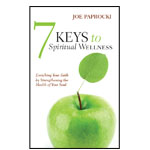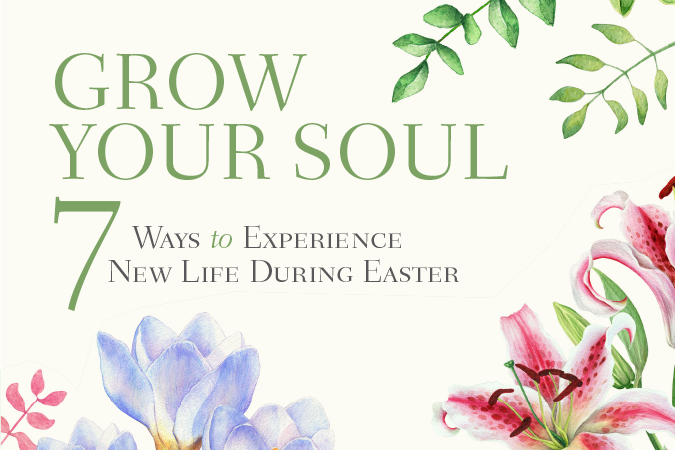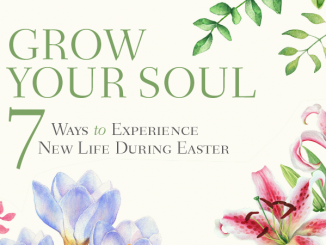Welcome to the next post in our Easter series, “Grow Your Soul: 7 Ways to Experience New Life During Easter,” drawing from my book, 7 Keys to Spiritual Wellness. Today we explore the fourth tip, which is to “Hold On Loosely.”
One of the most-read and most-loved books in recent Christian history is Henri Nouwen’s With Open Hands. This seminal book begins with Nouwen telling the story of an elderly woman in a psychiatric ward who was frantically swinging at everything in sight. As the staff struggled to restrain her, they found that she was ferociously clinging to a small coin in her clenched fist, afraid that, if they pried the coin—her last possession—from her hand, she would lose herself along with it. Nouwen goes on to say that the invitation to prayer—to enter into a relationship with the Lord—is like being asked to open up our tightly clenched fists and give up our last coin.
The truth is, we do tend to cling to our possessions as if they identify us, and we have a hard time letting go. In recent times, Marie Kondo has been attracting attention with her “crusade” to encourage people to unclutter their lives. Her bottom line is, if a possession does not spark joy, get rid of it. This notion is at the heart of the spirit of poverty that has been practiced by religious men and women in religious communities for centuries. Almsgiving—the giving of material goods to others—has always been considered one of the three central disciplines of Christianity along with prayer and fasting—disciplines that result in increased joy. As a Church, we just recently completed the 40-day period of Lent, a time of tidying up and uncluttering our lives. Why do we do this? Because it leads to joy!
I don’t know how many times I have heard from people who have visited parts of the world where people have been forced into extreme poverty and were astonished at the level of joy among those very same people. And yet, for the many of us who live with the abundance of first-world countries, we hoard possessions and still struggle to be happy. There are even TV shows about this sad phenomenon.
To let go of something that we think defines us is to “die,” to experience the death of a false self. The good news is that, in letting go, we are able to embrace the new life that the Risen Christ—our true source of happiness and the One who defines us—offers to us.
So, as we proceed during this festival of new life during the 50 days of Easter, let us take to heart the words of St. Ignatius of Loyola, who encouraged the attitude of indifference—not an indifference of not caring, but an attitude of holding on loosely.
For this it is necessary to make ourselves indifferent to all created things as much as we are able, so that we do not necessarily want health rather than sickness, riches rather than poverty, honor rather than dishonor, a long life rather than a short life, and so in all the rest, so that we ultimately desire and choose only what is most conducive for us to the end for which God created us. (The First Principle and Foundation, The Spiritual Exercises)
It is the capacity to let go of what doesn’t help us to love God or others while staying engaged with what does. Ignatius, like many other great saints, was the “Marie Kondo” of his time, teaching us to hold onto only those things that “spark joy” while also teaching that true joy is found only in the things of God.
P.S. For a good book about uncluttering your life with a spiritual emphasis, read Susan Vogt’s Blessed by Less: Clearing Your Life of Clutter by Living Lightly.
 Order your copy of 7 Keys to Spiritual Wellness at 25% off by using the code 5081 at loyolapress.com.
Order your copy of 7 Keys to Spiritual Wellness at 25% off by using the code 5081 at loyolapress.com.
Shipping and handling are additional. Offer expires 6/10/19. Cannot be combined with other special offers. U.S. domestic shipping orders only.




Be the first to comment